The skin is an organ that requires extensive care. Blemished skin however, it can also be an indication of an internal illness.
What is blemished skin?

Various irritations occur as external signs of impure skin, which can not only affect the appearance of a person. The psyche and the well-being of those affected often suffer from blemished skin.
Blemished skin is particularly evident from the appearance of blackheads, pimples or acne. In addition, blemished skin is often accompanied by a shiny, oily surface. Stubborn, blemished skin that appears not only temporarily but permanently is an enormous problem.
In contrast, blemished skin often only appears for a limited period of time. Various care measures and therapies can nowadays be used successfully against blemished skin.
causes
As complex as the appearance and extent of blemished skin can be, the triggers are just as varied. Basically, blemished skin is the result of excessive production of fatty secretions that are released from the sebum glands.
This process can, for example, be brought about by causes that lie in the patient's psyche and favor blemished skin. The individual disposition of a person also plays a role that should not be underestimated in connection with the development of blemished skin.
External influences can also promote hypersensitivity of the skin, which then leads to blemished skin. The internal triggers for blemished skin include not only one's own constitution, but also hormonal factors that are predominantly typical during puberty. Some drugs, such as anabolic steroids, can also trigger blemished skin in the form known as steroid acne.
Diseases with this symptom
- acne
- Steroid acne
- Hormonal imbalances
Diagnosis & course
The impure skin is mainly associated with the unpleasant and quite stubborn blackheads or acne pimples. With impure skin, deposits form in the deeper layers of the skin, which consist of dirt or dust and which, under the influence of sebum, clog the outlets of the glands.
In addition, the increased production of horn in the skin causes blackheads. Under the influence of microorganisms and white blood cells in the skin, these regions become inflamed, so that the impure skin appears in purulent pimples and blackheads.
Without treatment, these irregularities can develop into painful carbuncles or even purulent abscesses on blemished skin. The diagnosis of impure skin primarily refers to the visual assessment as well as smears that are examined in the laboratory.
Complications
Treatment by a doctor is not absolutely necessary for blemished skin. Anyone who is in puberty and does not treat the blemished skin directly has a relatively good chance that the skin will improve on its own. This is due to the hormonal change and unfortunately often cannot be avoided during puberty.
If the blemished skin appears in adulthood and is not treated, this can lead to scars and wounds that will not heal as quickly. Treatment by the doctor is usually carried out with a cream or tablets. Hormonal side effects are known to occur with the tablets, some of which can lead to mood swings.
The creams are designed in such a way that they often dry out the skin on the affected areas, which can lead to cracked skin and an uncomfortable feeling. If the blemished skin becomes stronger due to the cream or if there is no improvement, it is necessary to switch to tablets. Often, blemished skin is also linked to an incorrect diet. If the symptom appeared very suddenly, it may be due to something else. In this case a doctor should be consulted.
When should you go to the doctor?
Impure skin can appear in different degrees of severity, so that treatment by a dermatologist does not always have to be carried out. Pimples and redness appear on the face, especially during puberty, which can be treated with appropriate medication. Affected people often suffer from psychological problems, so that a visit to the dermatologist is inevitable.
A dermatologist can usually tell at first glance what the cause of the blemished skin is. Accordingly, creams or ointments can be prescribed that have a quick and effective effect. In particularly bad cases, inflammations can develop, which develop from the impure skin due to bacteria and viruses. Repeated scratching can even cause open wounds to form, creating a risk of an abscess. An abscess is a cavity that is filled with pus fluid.
With this clinical picture, a doctor should of course be consulted immediately. In such a case, the inflammation must urgently be treated with medication, as otherwise blood poisoning can result.
So the following applies: If you have blemished skin, you do not need to consult a doctor immediately. A dermatologist should only be consulted if severe inflammation or blisters form on the epidermis. With early treatment, the complexion can be effectively regenerated and improved.
Doctors & therapists in your area
Treatment & Therapy
Nowadays, impure skin can be treated very well even with stubborn and severe forms of the course and no longer has to be accepted as a burdening fate.
The treatment for blemished skin depends on the type of skin, the age of the person affected and the degree of severity. In the case of acne, in particular, which is associated with a great deal of suffering, different variants of therapy against blemished skin can show an excellent effect.
In addition to the therapy options based on the use of specifically selected drugs, so-called systemic treatments are also carried out. The medications for blemished skin related to acne are primarily ointments or liquids and tablets. These enable both holistic and localized treatment.
A large number of aesthetic medicine facilities and experienced cosmetic studios offer special procedures for blemished skin, which are known as microdermabrasion. In addition, a combination of different types of therapy with appropriate skin care can be useful to "get a grip" on impure skin.
Outlook & forecast
The prospect of blemished skin depends heavily on the age of the patient and the exact cause. In many cases the blemished skin occurs mainly in adolescents during puberty and is a common symptom. The blemishes on the skin usually disappear after a few months or years, unfortunately no universal prediction can be made here.
Lotions and scrubs can be used as supportive treatment. Medicinal treatment by the doctor is also possible if the blemished skin is very pronounced and particularly bothers the patient. However, the blemished skin often disappears on its own without any further complaints or complications. It not infrequently leaves wounds in the affected areas.
The treatment takes place with care products or with the help of medication and in most cases leads to a positive course of the disease. If the blemished skin appears due to poor hygiene, it can be eliminated by washing more often. Switching to healthy foods and giving up smoking and drinking alcohol will often help.
prevention
To prevent blemished skin, the skin should not be overly cared for and treated with chemical cosmetics. Applications based on a neutral pH value are recommended in this context because they do not damage the skin's natural protective layer. In addition, a change in diet and the professional removal of irritations can be helpful in masking the appearance of impure skin. Regular, professionally performed skin care also specifically prevents blemished skin.
You can do that yourself
Impure skin can have different causes and can therefore be combated using different strategies. The skin is often a mirror of the state of the body. Neurotoxins such as nicotine and alcohol put a strain on the organism and lead to a blemished complexion, redness and enlarged pores. Therefore, alcohol and smoking should be avoided as much as possible.
Diet is also an important factor. The more varied you eat, the more minerals and vitamins your body gets. He needs this for the regeneration of the skin. Vitamin A is important for the structure of the skin. Carrots contain a particularly large amount. But fennel, red peppers, mangoes, spinach and lamb's lettuce also provide a lot of vitamin A and should therefore be integrated into the menu. Vitamin E and omega-3 fatty acids are just as important. Vitamin E is found in almonds, hazelnuts, savoy cabbage and sunflower oil, among other things. High-fat sea fish such as herring, mackerel and salmon provide valuable omega 3 fatty acids.
In addition to the selection of suitable foods, hydration is also important. Only if the body has sufficient fluid available can it supply the skin with it and regenerate it. Herbal teas and water are particularly suitable. A daily intake of two to three liters is suitable. The skin needs clean and fresh air. Sports and exercise in the open air are therefore particularly recommended. Sauna sessions and healing earth masks open the pores and pull impurities out of the pores.
Proper care and the use of high-quality cosmetic products are also important for a clean complexion. Cosmetic products should be dermatologically tested for their skin tolerance and should not be applied too thickly. The more make-up is used, the more the pores clog and the more impure the skin's appearance. Before going to sleep, the skin should be cleaned thoroughly and, if necessary, gentle make-up removal lotions should be used.

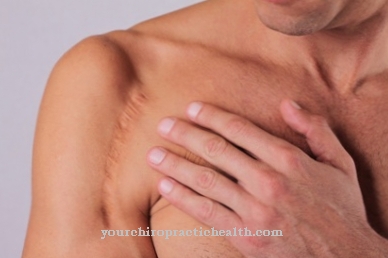
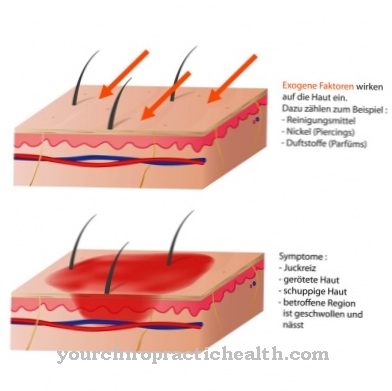
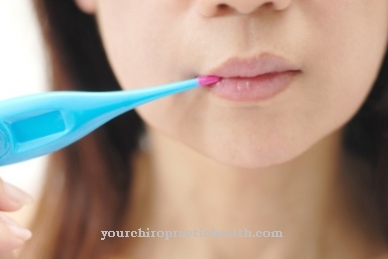

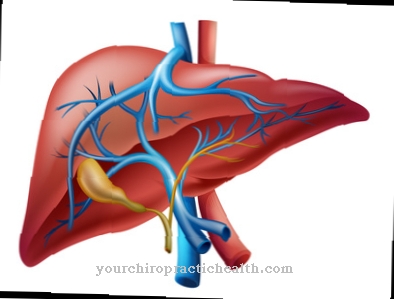
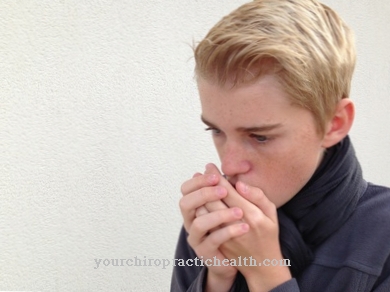





.jpg)



.jpg)










.jpg)
